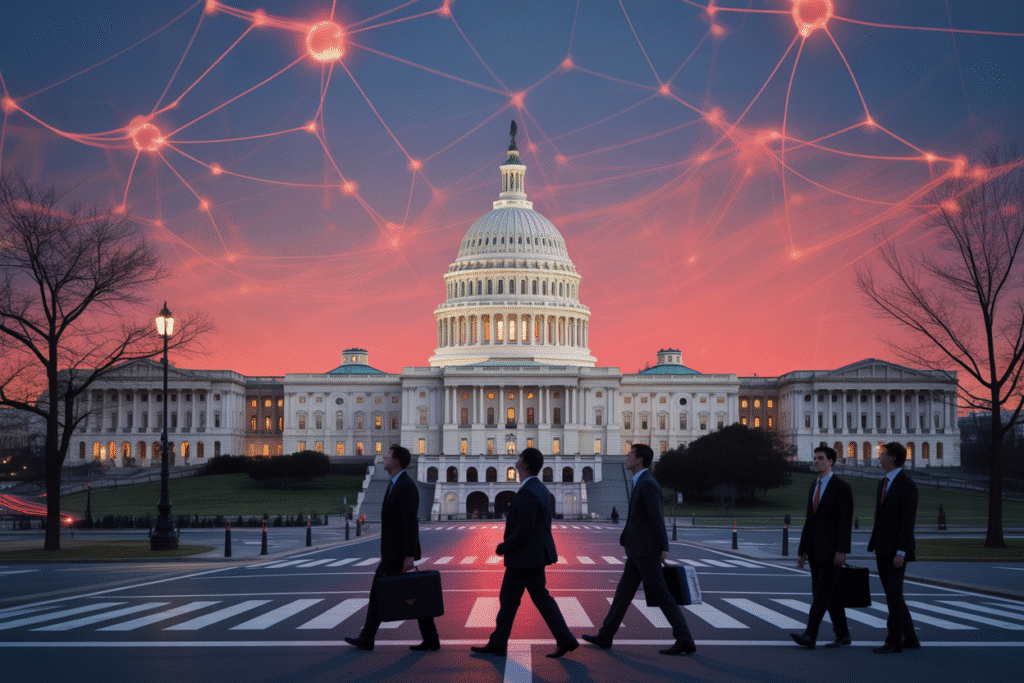From Melania’s pre-crime schools to secret summits on inequality, today’s AI politics headlines demand your attention — and action.
AI politics is moving faster than most of us can scroll. In just the last three hours, five separate stories have lit up timelines, each one touching the raw nerves of ethics, risk, and power. From a former First Lady’s call for pre-crime style monitoring to secret summits on inequality, the conversation is no longer academic — it’s personal, urgent, and sometimes chilling. Below, we unpack what happened, why it matters, and how it could reshape your daily life sooner than you think.
The Pulse of Now
AI politics is moving faster than most of us can scroll. In just the last three hours, five separate stories have lit up timelines, each one touching the raw nerves of ethics, risk, and power. From a former First Lady’s call for pre-crime style monitoring to secret summits on inequality, the conversation is no longer academic — it’s personal, urgent, and sometimes chilling. Below, we unpack what happened, why it matters, and how it could reshape your daily life sooner than you think.
The speed of today’s news cycle means a headline can feel ancient by dinner. Yet these five developments share a common thread: they force us to ask who gets watched, who gets left behind, and who writes the rules for the algorithms that increasingly decide both.
Five Stories Shaking the Feed
1. Melania Trump’s Pre-Emptive Intervention Proposal
During a morning Fox News segment, Melania Trump urged schools to adopt “pre-emptive intervention” tactics to spot potential shooters before they act. The phrase sounds gentle, but the subtext is surveillance — behavioral monitoring, data scraping, and possibly AI prediction models. Within minutes, X users connected her idea to Israel’s Gideon system, an AI tool that profiles threats in real time. Critics warned of a Patriot Act 2.0 for classrooms, while supporters argued saving even one life justifies expanded watchlists.
The debate split along familiar lines. Civil-liberties advocates pictured a dystopian hallway where every awkward teen is flagged by an algorithm. Parents of recent shooting victims asked why privacy concerns always seem louder than funeral bells. Meanwhile, conservative influencers demanded shooters’ medical records be made public, insisting sunlight is the best disinfectant. The irony? Both sides claim to champion safety — one through transparency, the other through prediction.
Key takeaways:
• AI-driven threat detection is no longer theoretical; it’s being pitched at the highest levels.
• The conversation jumps from policy to emotion within seconds, making nuance the first casualty.
• Expect legislation within months, not years, as both parties race to look toughest on school safety.
2. The Secret Summit on AI and Inequality
TIME magazine revealed that OpenAI and Google DeepMind quietly met to draft a “social contract” addressing AI’s economic fallout. The worry? Mass automation could hollow out middle-class jobs faster than new ones appear. Picture self-driving trucks replacing millions of drivers, or chatbots handling customer service so well that call centers vanish overnight. The summit floated ideas like universal basic income, algorithmic hiring audits, and mandatory retraining funds funded by tech giants.
Yet secrecy breeds suspicion. Labor unions weren’t invited, and leaked notes show execs worrying more about PR blowback than wage gaps. One attendee joked that the real inequality is between those who own the models and those who merely use them. The takeaway for everyday readers: your next job interview might be graded by an AI that was trained on data you never agreed to share.
3. Trump’s AI Action Plan and Medical Bias
The Atlantic dropped a scathing op-ed on the Trump administration’s plan to gatekeep health data in the name of national security. Author Craig Spencer, an ER physician, argues the move could bake existing racial biases into medical AI. If training data skews white and affluent, diagnostic tools might miss heart-disease patterns in Black patients or underestimate pain in women. The result? Faster innovation, but only for the already well-served.
Spencer’s piece landed like a gut punch because it pairs cold policy with warm bedside stories. He describes a Latina patient whose stroke symptoms were dismissed by an algorithm trained on lighter skin tones. The lesson: who controls the data pipeline literally controls who lives and who dies.
4. Right-Wing Populists and AI Meme Wars
An AI-generated video titled “English Lion” went viral, racking up nearly 400,000 views in two hours. It shows a majestic lion roaring over Brexit imagery, set to swelling orchestral music. Right-wing accounts hailed it as digital patriotism; critics called it algorithmic propaganda. The real story is how cheap and fast it is to produce emotionally charged content that blurs fact and fantasy.
Ben Sixsmith summed it up: conservatives aren’t just sharing memes, they’re “sleepwalking into an AI-enchanted dream.” The danger isn’t the lion itself; it’s the ease with which future deepfakes could fabricate rallies that never happened or speeches no politician gave.
5. The Surveillance Pledge Campaign
Tech founder Miss Khan issued a public challenge: every AI company should audit itself and swear off enabling government surveillance. The thread exploded, with privacy advocates cheering and skeptics rolling their eyes. After all, voluntary pledges rarely outlast quarterly earnings calls. Still, the campaign highlights a growing consumer demand for transparency — users want to know if their smart fridge is snitching on their late-night ice-cream binges.
The subtext is geopolitical. As U.S. firms eye lucrative contracts with foreign regimes, the question becomes not just “Are we being watched?” but “Who profits from the watching?”
What It Means for You Tomorrow
So what happens next? Expect three immediate ripple effects.
First, legislation. Congress loves a moral panic, and school-safety AI offers bipartisan photo-ops. Watch for bills that fund predictive policing in classrooms while claiming to protect kids. Second, labor unrest. If the secret summit leaks continue, unions will weaponize them to demand seats at every AI table. Third, consumer revolt. As deepfakes and data grabs multiply, users may flock to privacy-first platforms, forcing Big Tech to choose between ad revenue and public trust.
On a personal level, start asking who trains the algorithms that grade your resume, diagnose your cough, or decide your credit limit. The answers aren’t comforting, but awareness is the first step toward agency. After all, the future isn’t something that happens to us — it’s something we negotiate, one click, one vote, one viral thread at a time.
Ready to dive deeper? Share this piece with the friend who still thinks AI is just smarter spell-check — they’ll thank you when their job interview is scored by a robot.


